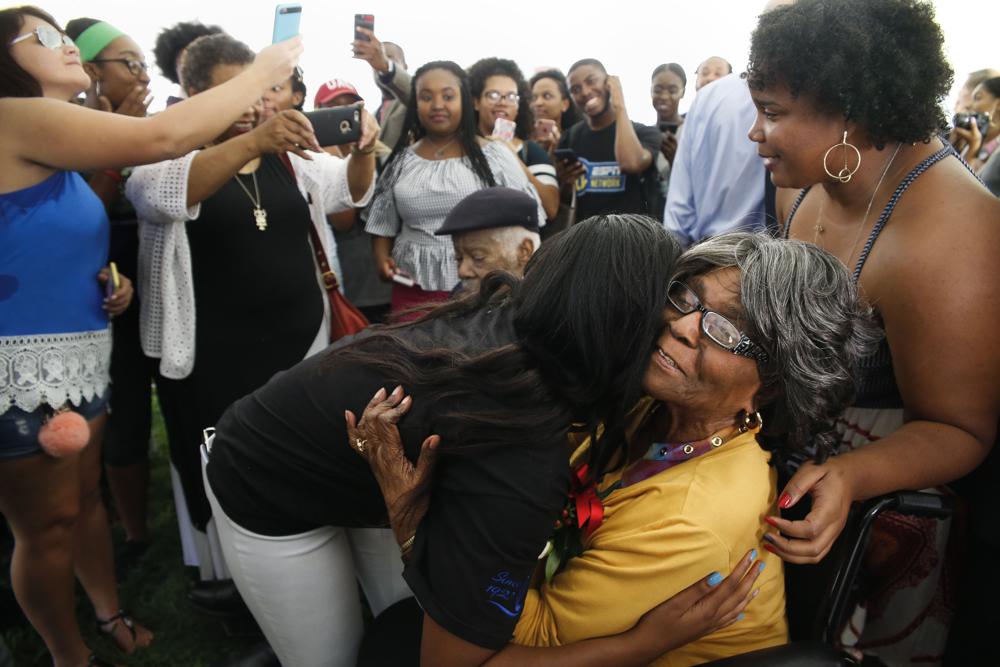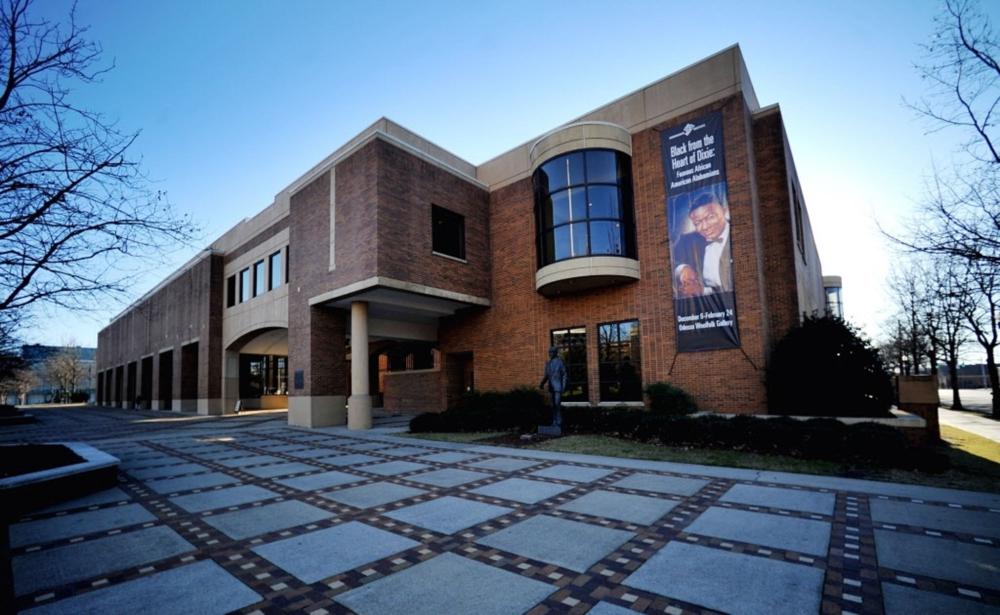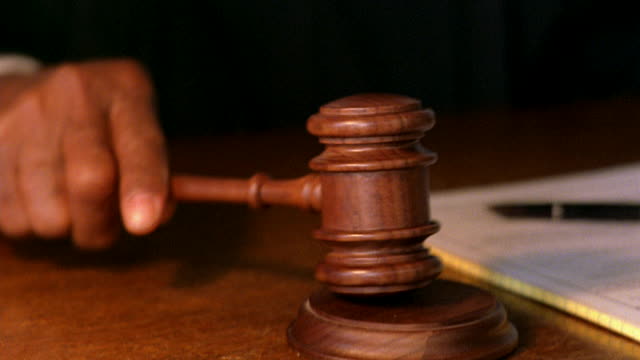Luther James Upton pleads not guilty in alleged radio threat on cop

A city leader from a south Alabama town has pleaded not guilty to a federal charge of using his local radio show to threaten a police officer who pulled him over. Evergreen City Council member Luther James Upton, 74, entered the plea on Wednesday, WALA-TV reported. He was indicted on a charge of making threatening interstate communications in November. Upton, who state court records show has had several traffic tickets through the years, allegedly went on a local radio show he hosts on May 18 urging Evergreen’s mayor and police chief to “get rid” of an officer who was only identified by initials in the indictment. ’“I dare him to stop me again. ’Cuz when he pulls me over, I’m going to put him down. I’m just telling ya now, I’m tired of it.”’ the indictment quoted Upton as saying. The defense contends Upton’s statements weren’t a real threat of harm, arguing that the First Amendment protects speech that’s “hyperbolic, inflammatory, shocking, or crude.” A defense request to dismiss the case against Upton compared his remarks to those of celebrity Kanye West threatening on Twitter to beat Saturday Night Live cast member Pete Davidson, who dates West’s former wife Kim Kardashian, and former President Donald Trump implying that supporters could use a “Second Amendment” solution if Hillary Clinton were elected president. Upton could face as long as five years in prison and a $250,000 fine if convicted, records showed. Republished with the permission of the Associated Press.
University of Alabama to remove KKK leader’s name from hall

University of Alabama trustees voted Friday to strip the name of a one-time governor who led the Ku Klux Klan from a campus building and rename it solely for the school’s first Black student. The unanimous vote reversed a decision last week to add the name of Autherine Lucy Foster, who briefing attended the all-white state school in 1956, to a building honoring Bibb Graves, a progressive, pro-education governor who also ran a Montgomery KKK group a century ago. Rather than Lucy-Graves Hall, the classroom building will be known as Autherine Lucy Hall, trustees decided. “It’s never too late to make the right decision,” said John England, a former trustee who led a committee that initially recommended the joint name and then reversed itself after criticism that Graves didn’t deserve to have his name alongside that of Lucy, now 92 and living in metro Birmingham. Trustees didn’t mention the topic of Graves’ leadership in the notorious hate group during an online meeting, but England said some questioned why the woman’s married name of “Foster” wouldn’t be on the structure. Foster’s family wanted to use her maiden name since she was known as Autherine Lucy while originally on campus, said Chancellor Finis St. John. Foster had expressed ambivalence about being honored alongside Graves, saying she didn’t know much about him or seek out the recognition but would accept it. Foster briefly attended classes in Graves Hall but was expelled after three days when her presence brought protests by whites and threats. Foster was awarded an honorary doctorate in 2019 by the university, where she had returned and earned a master’s degree in education in 1992. Explaining the original reasoning for proposing Lucy-Graves Hall, England said committee members hoped that having a building named for both Graves and Foster would “generate educational moments that can help us learn from our conflicts and rich history.” While the main intent was meant to honor Foster, that “sort of took the background” after the decision, he said. “That’s not what we wanted,” he said. The student newspaper was among those complaining about the inappropriateness of retaining the name of a Klan leader on a campus building. Several Alabama universities have removed Graves’ name from buildings in recent years as the nation reconsidered its history and white supremacy. Troy University renamed its Bibb Graves Hall for the late Rep. John Lewis, who was denied admission there in 1957 and led voting rights marchers in Selma in 1965. Republished with the permission of the Associated Press.
Mountain Brook school system faulted for response to Nazi salute

An Alabama school system’s “disconcerting” response to complaints from a Jewish student that a teacher had classmates perform a Nazi salute shows a lack of commitment to diversity, an organization that promotes civil and human rights said Friday. While Mountain Brook Schools issued a statement saying it was “deeply apologetic for the pain” caused by a lesson that “lacked sensitivity,” the Birmingham Civil Rights Institute questioned actions by the system, which previously ditched a diversity program produced by an organization that combats antisemitism. “It is in this light that we find a more recent incident involving the Nazi salute displayed by students in a Mountain Brook classroom particularly disconcerting, as it shows a conspicuous lack of preparation on the part of administrators to discuss, teach and lead in this area,” the city-owned educational institute said in a statement. A spokesman for the school system, located in a nearly all-white, wealthy suburb of Birmingham, did not immediately return an email message seeking comment. In a story first reported by the Birmingham-based Southern Jewish Life, a Jewish student said he was shocked last month when a history teacher at Mountain Brook High School had classmates stand and give a stiff-armed Nazi salute during a lesson on the way symbols change. The student, Ephraim Tytell, said school officials reprimanded him and told him to apologize to the teacher after he shared a video and photos of the incident on social media. The student said he refused. The lesson was meant to show how symbols change by demonstrating that something very similar to what’s now widely known as a Nazi salute was used before World War II to salute the U.S. flag. Called the “Bellamy Salute,” it was ditched in 1942 for the right-hand-over-the-heart gesture following the United States’ entry into the war. On Tuesday, the school system issued a statement saying the video and photos shared online “are not representative of the lesson,” and no one tried to teach students how to do a Nazi salute. With blowback continuing, the system issued a more conciliatory statement on Thursday that said in part: “There are more effective ways to teach this subject without recreating painful, emotional responses to history’s atrocities.” “To improve our instructional strategies, we will continue to work with the Alabama Holocaust Education Center to advance training for our teachers surrounding Antisemitism, the Holocaust, and its symbols,” said the statement. The system said it stands “absolutely and unequivocally” against antisemitism. The Birmingham Jewish Federation said the system’s follow-up statement was a “direct result” of conversations it had with leaders of the school system. School officials “fully recognize and understand the insensitivity of the instruction in the classroom that day and the absence of a safe space for learning for the students,” said the Jewish organization. William Galloway, a spokesman for Mountain Brooks Schools, said it was against system policy to comment on whether the teacher remained in the classroom. Last year, Mountain Brook’s school system responded to community complaints about a diversity program produced by the Anti-Defamation League by dropping the lessons. Schools had begun using the material after antisemitic events, including a video of a student with a swastika drawn on his body. Opponents claimed the lessons focused too much on race and gender and criticized the ADL as being too political. Republished with the permission of the Associated Press.
Court upholds Montgomery red light camera law

The Alabama Supreme Court has upheld Montgomery’s red light camera law. Justices ruled Friday 6-1 in favor of the city and against motorist Richard Glass who challenged the ordinance, and related state act, as unconstitutional under the Alabama Constitution. The 2007 ordinance established a traffic-light camera system and instituted civil penalties for traffic-light violations. The Alabama Legislature in 2008 enacted a related local act called the “Montgomery Red Light Safety Act.” Glass challenged the constitutionality of the law on several grounds, including arguing it was a duplication of state law and not allowed under the state constitution. He also argued that it violated a section of the Alabama Constitution that says the Legislature can not pass a special local law “fixing the punishment of crime.” Associate Justice Sarah Stewart wrote that the city law did not try to supersede general state traffic laws and also met a “demonstrated local needs” requirement. The majority opinion also noted that the red light camera law “does not impermissibly fix punishment for a crime by assessing a civil penalty for a civil violation.” “The Ordinance and the Act, moreover, do not exempt motorists from compliance with the general laws, and Glass has not identified any conditions in the general laws that are ‘mutually repugnant’ to conditions in the Ordinance or the Act,” Stewart wrote in the majority opinion. Chief Justice Tom Parker dissented from the majority’s ruling. “That common sense teaches that running a red light is dangerous everywhere, not just in Montgomery. And that simple fact undercuts the City’s argument that the Legislature found a local need for red-light cameras,” Parker wrote. Republished with the permission of the Associated Press.


